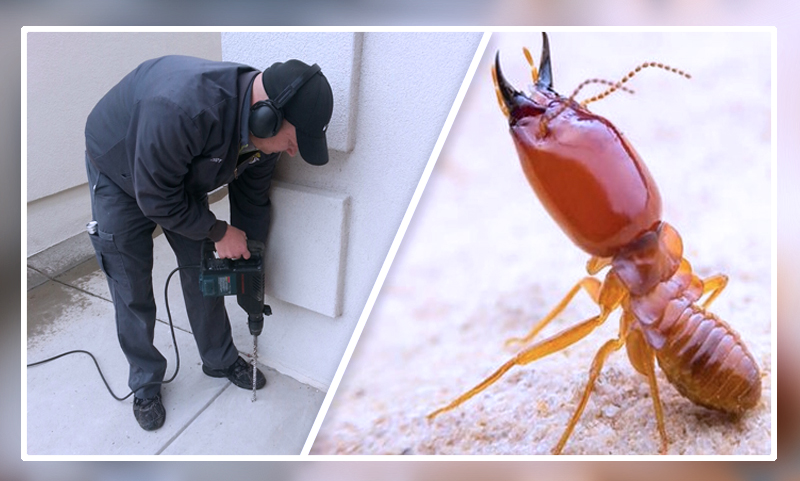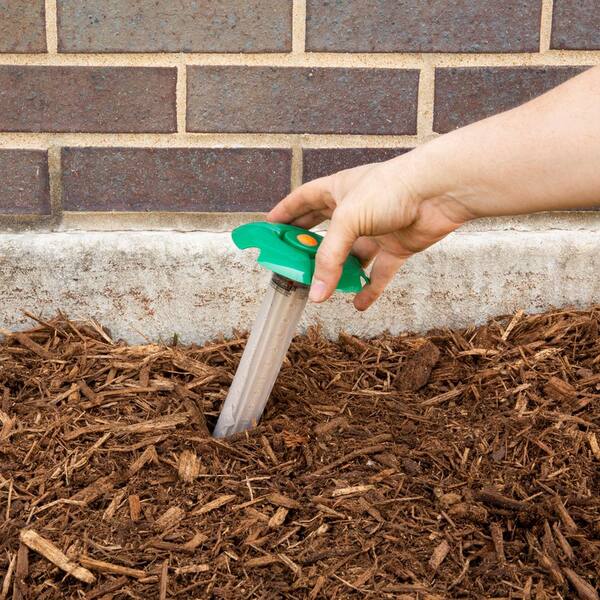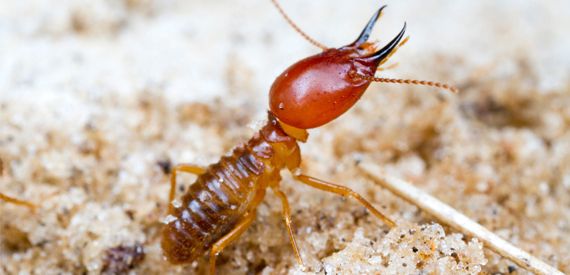Expert Termite Control Services: Protect Your Home from Termite Damage
Environmental Impact of Parasite Control: Harmonizing Effectiveness With Sustainability
The ecological influence of insect control is a vital issue that calls for a fragile balance in between achieving performance in making sure and managing parasites sustainability of our environments. As we strive to shield our crops, homes, and wellness from the risks posed by bugs, the methods we utilize can inadvertently damage the environment. From using damaging chemicals that permeate into our dirt and water to the unintended effects on non-target species, the consequences of conventional insect control techniques are significant. There are emerging techniques that supply hope for a more sustainable technique to pest monitoring. These solutions not only goal to resolve the immediate insect issues yet additionally consider the long-lasting health and wellness of our earth.
Dangerous Chemicals in Parasite Control
The application of dangerous chemicals in parasite control postures substantial ecological and health and wellness dangers that require careful consideration and reduction approaches. Pesticides, insecticides, and herbicides are typically used to eradicate pests, yet their prevalent application can cause unintentional consequences. These chemicals can infect dirt, water resources, and the air, impacting not only the targeted insects yet also helpful insects, wild animals, and people.

To address these risks, incorporated parasite monitoring (IPM) strategies are being advertised as a much more sustainable alternative. IPM involves a mix of approaches such as biological control, habitat manipulation, and the targeted usage of chemicals as a last resort (ant control raleigh nc). By adopting an all natural strategy to pest control, we can reduce the environmental and wellness effects related to unsafe chemicals while successfully managing pest populaces
Influence On Non-Target Species
Thinking about the unintentional effects of insect control approaches, the effect on non-target species is a vital aspect that needs comprehensive evaluation. While bug control measures intend to target specific bugs, various other organisms in the ecological community may be accidentally affected. Non-target varieties, including helpful insects, birds, animals, and even plants, can experience straight or indirect damage from chemical applications or biological control techniques.
Chemicals can have sub-lethal or dangerous impacts on non-target species. For instance, pesticides developed to battle a specific bug bug might damage pollinators like bees or all-natural predators such as ladybugs. Additionally, chemical residues can collect in the environment, affecting non-target organisms with time. Organic control agents, if not species-specific, can position dangers to unexpected targets, interfering with the eco-friendly equilibrium.
To reduce the effect on non-target species, integrated pest management (IPM) strategies that emphasize a holistic approach to pest control are advised. These techniques prioritize making use of ecologically friendly practices, decreasing injury to useful organisms while effectively taking care of pest populaces. Carrying out extensive risk analyses and checking the end results of insect control efforts are crucial action in protecting non-target species and advertising overall ecosystem wellness.
Soil and Water Contamination
Unplanned environmental consequences of bug control approaches extend beyond affecting non-target varieties, with substantial implications for soil and water contamination - termite control services. Pesticides, herbicides, and chemical fertilizers utilized in bug control can seep right into the dirt and contaminate groundwater, positioning a danger to both earthbound and marine communities.
Water contamination is one more important concern associated with pest control methods. Runoff from agricultural fields treated with pesticides can carry these chemicals into close-by water bodies, impacting water organisms and water high quality. Pollutants in water sources can have significant repercussions, affecting not only aquatic life but also human health through the intake of infected water or marine microorganisms. To alleviate soil and water contamination from insect control activities, integrated insect administration techniques that prioritize sustainability and minimize chemical inputs are crucial.
Air Pollution From Pesticide Use
Direct exposure to airborne pesticides throughout agricultural applications poses a substantial problem for air pollution control steps. They can volatilize into the air and form unpredictable organic substances (VOCs) and other air-borne contaminants when chemicals are sprayed onto plants - ant control. These chemicals can add to the formation of ground-level ozone, a significant component of smoke that can have detrimental results on human health, plant productivity, and total air quality. In addition, pesticide drift, where chemicals are carried by the wind to unexpected areas, can cause the contamination of nearby environments and water bodies.

Strategies for Sustainable Insect Control
In the realm of agricultural methods, carrying out sustainable insect control approaches is paramount for maintaining ecological balance and securing plant returns. Lasting bug control stresses using eco-friendly approaches to take care of pest populaces effectively while minimizing harm to non-target organisms and environments. Integrated Bug Administration (IPM) is a commonly embraced method that integrates biological, cultural, physical, and chemical control approaches to attain lasting bug administration services.
One key strategy in lasting parasite control is advertising biodiversity within agroecosystems. By improving natural enemies of parasites, such as killers and Related Site parasitoids, farmers can decrease the need for artificial chemicals. Crop rotation and diversity are likewise effective strategies to interfere with pest life cycles and produce much less beneficial conditions for parasites to prosper. Furthermore, using pest-resistant plant ranges and employing strategies like trap chopping can help in reducing pest stress without relying greatly on chemical interventions. Inevitably, by incorporating these sustainable bug control techniques, farmers can attain an equilibrium between pest administration effectiveness and ecological stewardship.
Conclusion
Finally, the ecological impact of bug control methods should be carefully thought about to stabilize performance with sustainability. Damaging chemicals made use of in pest control can result in dirt and water contamination, air contamination, and damage non-target varieties - ant control services. It is important to carry out lasting insect control strategies to reduce these unfavorable results on the setting and promote a healthier community for future generations
By embracing an all natural strategy to pest control, we can minimize the environmental and health impacts connected with dangerous chemicals while properly taking care of pest populaces.

To mitigate the air pollution created by pesticide usage, it is essential to embrace incorporated insect monitoring strategies that prioritize the usage of non-chemical pest control techniques, such as plant turning, natural predators, and immune crop ranges. Lasting parasite control emphasizes the usage of eco pleasant methods to handle parasite populations efficiently while decreasing harm to non-target organisms and environments. Integrated Parasite Management (IPM) is a widely embraced technique that incorporates biological, cultural, physical, and chemical control techniques to accomplish lasting parasite management services.